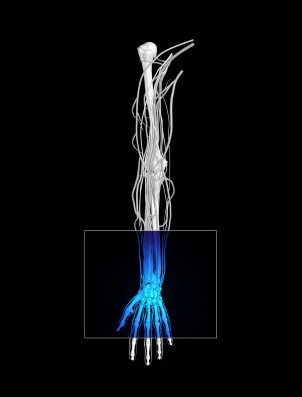
A forcible blood draw is a rare occurrence in driving under the influence cases in the state of Illinois. It may happen in only one percent of all arrests.
In all other cases, police officers follow the procedures for voluntary chemical testing such as administering a breathalyzer.
During a forcible blood draw, the police are authorized to restrain the suspect for taking blood. They may strap him down in a hospital bed.
The legality of a forced blood test has been challenged previously on grounds that it violates the 4th Amendment to the United States Constitution. Litigants have asked the appellate court to rule the results inadmissible because the blood was drawn without a search warrant. But the Illinois Supreme Court decided that the law does not violate the warrant requirement as long as the police have probable cause that a DUI has been committed. And so, no search warrant is required for forcible blood draws.
The law in Illinois concerning forcible blood draws is Section 11-501.2 of the Vehicle Code. The statute says that a police officer may forcibly draw blood from a suspect if he or she has probable cause to believe that the suspect was involved in a motor vehicle accident involving personal injury or death while DUI. See 625 ILCS 5/11-501.2.
Specifically, the police officer must have probable cause to believe the following:
- A motor vehicle has caused personal injury or death to another.
- The suspect was driving or in actual physical control of the motor vehicle.
- The injury was type A on the traffic accident report.
- The suspect was under the influence.
See 625 ILCS 5/11-501.2(c)(2).
According to the rules, the injury must be suffered by a person other than the suspect. So if the driver was injured in an accident but no one else, then a forcible blood draw would not be legal.
The defendant should petition the court to exclude the result on grounds that it was obtained in violation of the statute.
Further, if the police did not have probable cause to believe the defendant was the driver, then the result may also be suppressed. Of course, the police will always justify their actions in court by testifying, ‘Yes, we knew he was the driver.’ Counsel for the defendant should subpoena the audio recordings of radio communications between dispatch and the officers in the field to determine what they knew and when. Maybe the police were not sure the defendant was the driver.
Finally, the injury must qualify. The Illinois Traffic Crash Report is a standard form used by all police agencies in Illinois in which the officer fills in names, vehicles, insurance, and injuries involved. There are three types of injury notations on a traffic accident report:
- Type A – injury is reported and apparent.
- Type B – injury is reported but not apparent.
- Type O – no injury reported, none apparent.
Most auto accidents involve Type B injuries, where the people complain of neck or back pain. These soft tissue injuries are not apparent and do not qualify for forcible blood draws.
The statute defines eligible injuries as the following:
For purposes of this Section, a personal injury includes any Type A injury as indicated on the traffic accident report completed by a law enforcement officer that requires immediate professional attention in either a doctor’s office or a medical facility. A Type A injury includes severe bleeding wounds, distorted extremities, and injuries that require the injured party to be carried from the scene.
625 ILCS 5/11-501.2(c)(3).
Lastly, one important consideration is that Illinois law now provides for testing after leaving the scene of a motor vehicle accident involving personal injury or death. Even where the driver is not under arrest for DUI, the police are authorized to ask the driver to submit to chemical testing as long as he is in custody within 12 hours of the accident. The results of testing, or refusal, may result in a statutory summary suspension. See 625 ILCS 5/11-402.
Any person arrested for violating this Section is subject to chemical testing of his or her blood, breath, or urine for the presence of alcohol, other drug or drugs, intoxicating compound or compounds, or any combination thereof, as provided in Section 11‑501.1, if the testing occurs within 12 hours of the time of the occurrence of the accident that led to his or her arrest. The person’s driving privileges are subject to statutory summary suspension under Section 11‑501.1 if he or she fails or refuses to undergo the testing.
625 ILCS 5/11-402(b-1).
According to the law, a forcible blood draw is not authorized if the driver is not accused of DUI. Only when the police have probable cause for DUI will a forcible test be required.

